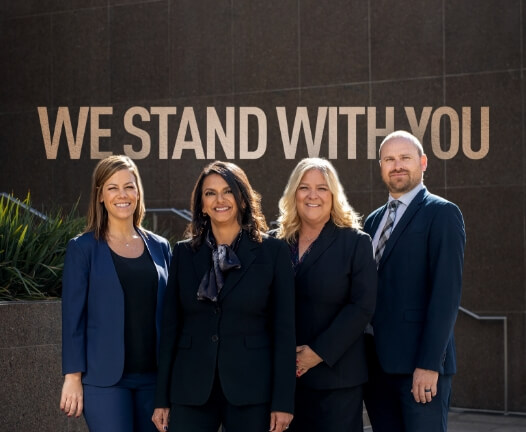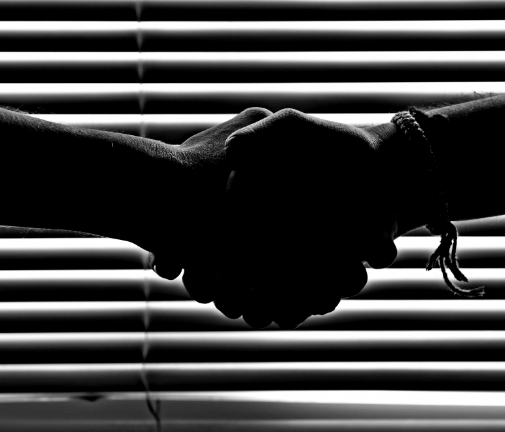
False advertising is prohibited by state and federal
false advertisement laws. At the federal level, the
Lanham Act allows consumers to sue businesses
when their commercial advertising “misrepresents
the nature, characteristics, qualities, or geographic
origin” of goods or services. The Federal Trade
Commission has also enacted regulations that
prohibit deceptive advertising and help support false
advertising attorneys.
In California, the Unfair Competition Law prohibits
unfair, deceptive, untrue or misleading advertising.
Deceptive advertising laws permit consumers who
have been harmed by a falsely advertised product
or service to sue the advertiser. The consumer’s
harm is usually the failure to receive what the
consumer expected after paying for a product or
service because the expectation was created by
false and deceptive advertising.
Even when a product is inexpensive, a consumer who has been duped into buying it suffers harm. Lawsuits for false advertising allow consumers who have suffered relatively small harms to join together in bringing a collective claim against the false advertiser.
Class action lawsuits force businesses to compensate large numbers of consumers who have been harmed by false advertising. Successful class action lawsuits may also compel businesses to advertise honestly. The false advertising lawyers at The Haeggquist and Eck Firm represent California consumers in class action lawsuits based on false advertising and offer free case evaluations. If you’ve suffered as a result of deceptive marketing, The Haeggquist and Eck Firm will evaluate your circumstance for free.

False Advertising
in California

California law defines advertising broadly to include most statements made to promote the sale of a product or service. Advertising includes not only traditional media advertising (television and radio commercials and printed ads), but also descriptions of goods and services on websites, on displays next to a product, and on product labels. Information provided in telephone solicitations may also be covered by false advertising laws.
California law prohibits advertising that is untrue or misleading. Untrue advertising is advertising that makes an untrue statement. Advertising that a shirt is made from cotton when it is actually made from polyester is an example of untrue advertising.
Under California law, advertising is misleading if it would likely deceive a reasonable consumer. Whether an advertisement is misleading depends upon the overall impression that the advertisement conveys, including the words and images used.
Examples of False Advertising
False or misleading advertising can occur in many different ways. Here are some examples:
- Advertising counterfeit products as genuine.
-
Advertising products as “Made in the U.S.A.” when
substantial parts of the product come from
another country. -
Making untrue representations of product
performance. Examples include flash drives and
memory cards that do not provide the advertised
amount of memory or that fall well short of
advertised speeds. -
Overstating engine horsepower in vehicle
advertisements. -
Advertising that a product is “clinically proven” to
have a certain benefit when no such proof exists. -
Advertising a product as “natural” when it includes
artificial ingredients or as “organic” when it has not
been organically grown. -
Implying that a drug is the generic equivalent of
another drug for which no generic version is
available. -
Planting fake reviews of a product on a commercial
website (Amazon, for example) without disclosing
that the reviews are not from actual consumers. -
Advertising that an accessory (for example, a mop
head or a vacuum cleaner bag) is designed to fit
a specific product when, if fact, it does not fit
the product. -
Advertising success rates of people who complete
a particular course (for example, the rate of
students who pass a real estate licensing exam
after taking a course) when the advertised success
rates are misleading or inaccurate. -
Advertising a service (such as hair removal) as
“pain free” when in fact it is painful.
-
Using “enhanced” photographic techniques to
improve the appearance of the “after” picture in
“before and after” comparisons. -
Advertising “no hidden fees” when a customer is
required to pay undisclosed fees. -
Advertising “haggle free, no negotiation” prices
(on used cars, for example) when the
salesperson attempts to negotiate with
customers who turn down the advertised price. -
Advertising that an antibacterial product or an
herbal supplement will help consumers avoid
catching colds or the flu when there is no
evidence to support those claims. -
Advertising that a product outperforms a
competing product when the evidence does not
support that claim. -
Claiming that shoes are based on a “secret
technology” that helps wearers burn fat when,
in fact, they are ordinary running shoes.
Advertising that a battery or light bulb “lasts
longer” than other brands when that claim
is untrue. -
Advertising that a diet supplement will help
consumers lose weight without disclosing that
increased exercise and reduced caloric intake
are required before the consumer will
see any results. -
Advertising that a product has “no calories”
when it does. -
Advertising that a sugary cereal or similar food
product is “good for you” when it is actually
detrimental to health. -
Offering a rebate for the product without
disclosing terms that will disqualify most
consumers from receiving the rebate.
Take a look at our Product Labeling page for additional examples of false advertising that apply to
misleading product labels. In such instances, those affected would benefit from speaking with a
lawyer for false advertising.
Bait-and-Switch
Advertising
Bait-and-switch is a tactic that sellers use to lure consumers into their businesses by advertising a
product or service at a very favorable price. Once the consumer responds to the advertisement, the
seller pressures the consumer to buy a more expensive good or service.
advertise a product or service at a particular price as part of a plan or scheme with the intent not to
sell that product or service at the advertised price. Examples of bait-and-switch schemes include:
- Claiming the advertised product is “sold out” and encouraging the customer to buy a more expensive product rather than offering a rain check.
- Displaying the picture of a high quality product in an advertisement when a different, inferior product is the one being offered for sale at the advertised price.
- Advertising a low-cost insurance policy and then attempting to persuade consumers that they need a more expensive policy.
- Advertising a low-cost hotel room without disclosing that mandatory extra charges will substantially increase the cost of the room.
False Advertising
Class Action Lawsuits
Successful false advertising claims have been brought against big companies that manufacture
brand name products, including Sketchers and New Balance running shoes, Activa and Airborne cold
prevention medications, Hyundai and KIA automobiles, Listerine mouthwash, Dannon yogurt, Duracell
batteries, Kellogg’s cereals, and Pennzoil motor oils. Smaller, local companies have also been
successfully sued for violating false advertising laws.
What Victims Can Do
If you believe you were induced to purchase a product or service by advertising that was untrue,
deceptive, or misleading, call the false advertising lawyers in California at The Haeggquist and Eck
Firm for an evaluation of your case. It may be possible to use a class action lawsuit to vindicate your
rights. Call (619) 342-8000 to get help today.
Haeggquist & Eck, LLP’s class action law attorneys in San
Diego offer free case evaluations to help you understand
how we can assist you with your claim. Contact us online or
call (619) 342-8000 for more information.
What Are the Benefits of a
Class Action?

Class actions are based on the idea that there is
strength in numbers. They allow individuals to file
lawsuits to challenge unfair, unsafe, or illegal
practices. While the prospect of a class action may
seem overwhelming to a single person, this type of suit can successfully reform or stop unfair practices
more successfully than an individual claim could.
Class actions have been used to promote civil
rights, consumer rights, employee rights, the right to
fair housing, the right to medical care, and are also
used to fight securities fraud and antitrust
violations. They have advanced the rights of people
injured by defective or harmful products like
cigarettes, defective tires, defective vehicles,
asbestos, Agent Orange, breast implants, and
many others. Often, class actions help the
government enforce laws, make business practices
safer, keep unfair business practices in check, and
compensates consumers or investors for the harm
they suffered at the hands of corporations.
How Do I Know If My Claim Is Appropriate for a
Class Action Lawsuit?
Various laws are in place to protect your rights as a consumer or investor to prevent businesses or other entities from injuring you or treating you unfairly. The government, however, clearly does not have the resources to monitor every action every business takes and to enforce all of those laws.
Inadvertently or deliberately, a business or other entity may violate a law or contract or act in a way that it is unfair, illegal, or unsafe for the public. It may be on such a small scale on the individual level that the violation goes unchecked, but the same violation can be constantly taking place and affecting dozens or millions of people. Corporations may not correct a wrong voluntarily where doing so is expensive, unprofitable or embarrassing, which is a classic situation that can lead to a class action lawsuit. If you recognize a situation like this, reach out to our class action law attorneys at Haeggquist & Eck, LLP today for help!

What Does It Cost to Bring a
Class Action?
What Is a Class
Representative?
or a company that believes it has been wronged, realizes that others are being injured similarly, wants
the offending practice to end, and wants to be compensated with the other members of the class for
monetary damages. A class representative is one of the named or “lead” plaintiffs in the lawsuit.
How Do I Become a
Class Representative?

wronged and realizes that others are likely being
injured as well should contact class action law
attorneys in San Diego, like ours at Haeggquist &
Eck, LLP, who have a lot of experience handling
class actions. Our team will meet with that person
and then examine the matter to determine the
best course of action based on our evaluation of
the merits of the case. If we decide to go forward
in filing the class action, the individual or group
would act as the class representative. We would
then bring the lawsuit forward in the person’s
name and on behalf of a defined class of
similarly situated persons.
What Is Expected of a
Class Representative?
The class representative does not need to pay any money to bring the suit, but they may have to provide paperwork and background information that’s relevant to the case. Over the course of the lawsuit, the representative may have to answer questions about the case, which includes sitting for a deposition. The representative would be guided and assisted in these matters by his or her class action law attorneys in San Diego. During the course of the lawsuit, the representative will be periodically called upon to assist in the suit and help make all major case decisions with the advice of their lawyers. If the suit is successful, the representative generally receives extra compensation (with court approval) for their time and contribution.
What Steps Are Involved in a Class Action
and Does It Take a Long Time?
brand name products, including Sketchers and New Balance running shoes, Activa and Airborne cold
prevention medications, Hyundai and KIA automobiles, Listerine mouthwash, Dannon yogurt, Duracell
batteries, Kellogg’s cereals, and Pennzoil motor oils. Smaller, local companies have also been
successfully sued for violating false advertising laws.
After the attorneys thoroughly investigate the facts and examine the law that will correct the wrong, a letter may be sent to the alleged wrongdoers to try and obtain the desired relief without litigation. If the law firm decides to proceed with litigation, it will file a lawsuit with the representative as lead plaintiff.
San Diego class action law attorneys will then ask the court to certify the suit as a class action, and if the case meets the legal requirements, the court will certify the case and it will move forward. As appropriate and with the representative’s authorization, the attorneys may negotiate with the opposing counsel to obtain a reasonable compromise or settlement for the class. Although every case is different, it typically takes several years to achieve a successful resolution to a class action lawsuit.

If you think you have a class action claim, contact Haeggquist & Eck, LLP online today or call (619) 342-8000 for help.











